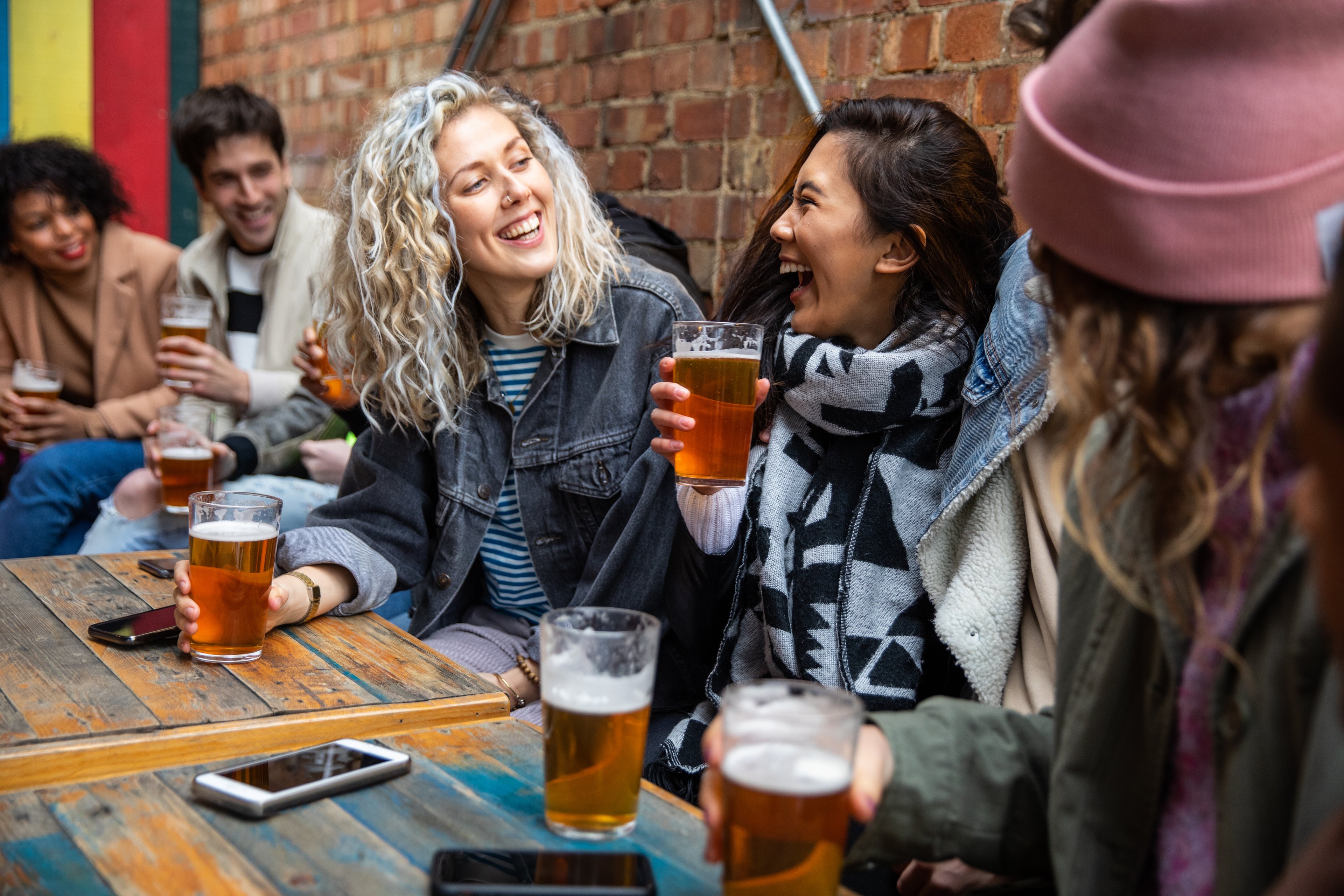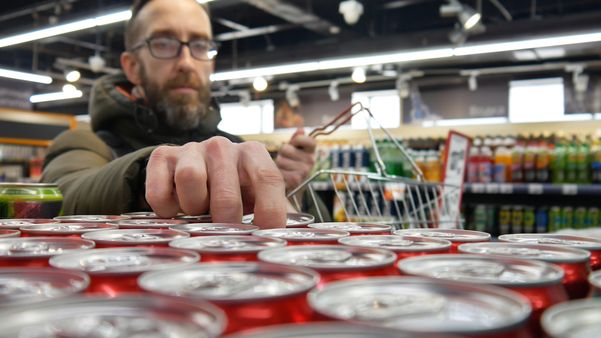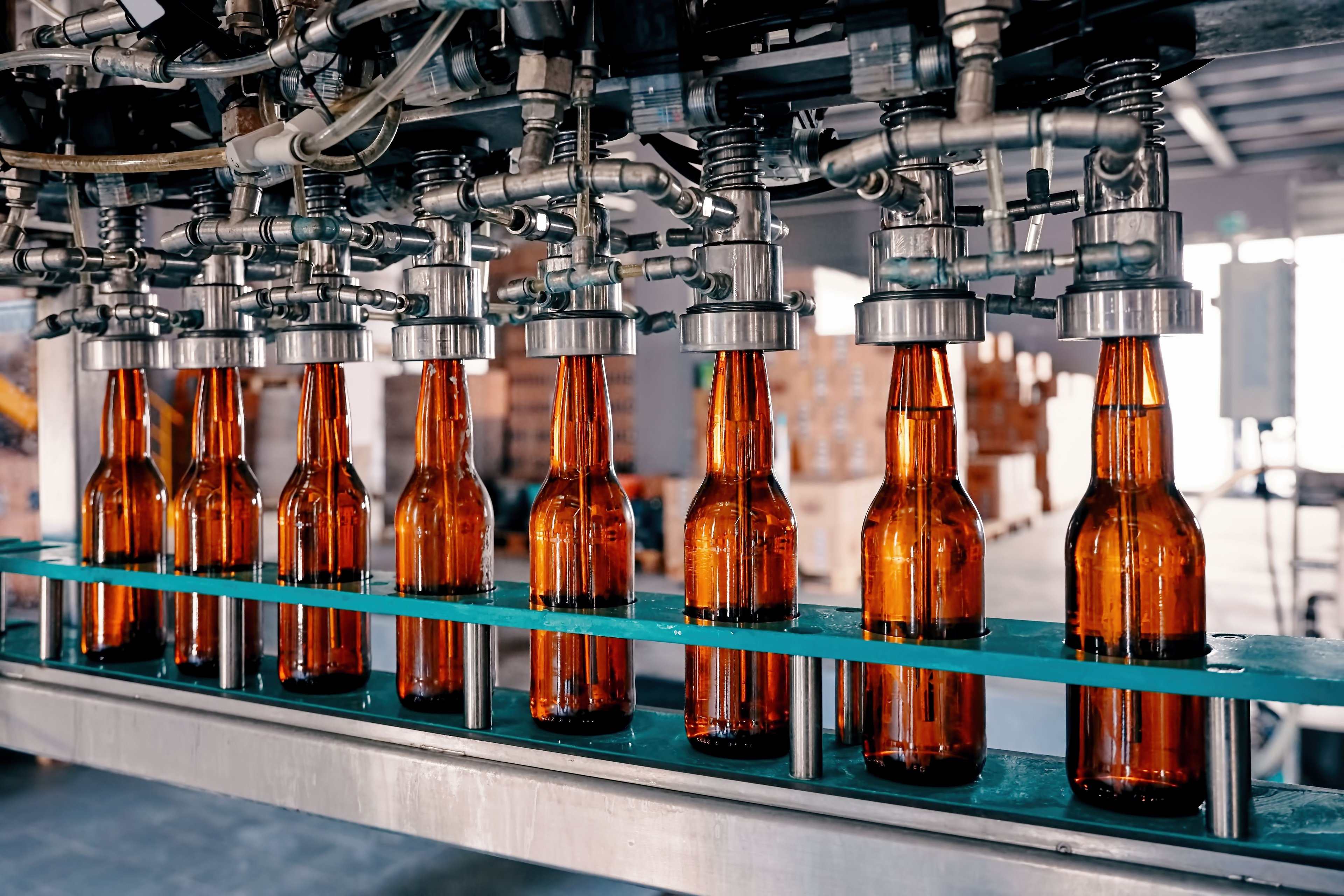Almost all the growth for Boston Beer (SAM +5.58%) now comes from outside of its beer production. Hard seltzer and tea are driving the brewer forward, and it also reflects what's occurring in the industry at large.
But unlike what happened when Boston Beer branched off into hard soda, a category that founder and chairman Jim Koch has said went "boom-splat," hard seltzer looks like it can sustain its success in for a long time.
Net revenue surged 32% in the quarter to $251.7 million on an impressive 11% run-up in depletions (sales from wholesalers to retailers), which is considered an industry proxy for consumer demand. It marked the fourth consecutive quarter Boston Beer saw double-digit depletion growth, and it was the result of virtually anything that wasn't labeled beer.

Image source: Truly Hard Seltzer.
The big opportunity in seltzer
This is no longer your father's brewer, an epithet once hurled at Boston Beer to explain why its flagship Samuel Adams lager was not popular with millennials. Basically, they didn't want to drink the same beer their dads did.
While it's actually much more complex than that, Boston Beer has moved far away from just being a beer company. Its Angry Orchard hard ciders remain very popular, even if volumes decreased year over year because it was lapped with the introduction of its rose cider, one of 2018's successful brand extensions. Similarly, the Twisted Tea brand is a perennial favorite, and the launch of Truly Hard Seltzer in 2016 has helped to define the category.
Truly is the second biggest brand behind White Claw, the hard seltzer from the folks who make Mike's Hard Lemonade. Together, they own the segment with a combined market share of around 80%.
But Truly's growth has been so strong that Boston Beer revised its full-year depletions expectations based primarily on its performance in the first quarter. And that was a surprise even to the brewer, because seltzers are typically seen as a summer drink, but Boston Beer said there was no real letup in demand throughout the winter. In fact, demand was so strong, it actually hurt profit margins.
A good problem to have
First-quarter gross margin fell 100 basis points to 49.5% because it had to use third-party breweries to meet production requirements and then had to employ hundreds of temporary workers every day to package the product. While Boston Beer has subsequently purchased equipment that should minimize the necessity of using outside breweries and workers, it won't come online in time to meet this year's summer demand. Koch says it will be ready for next year, but added he hopes the brewer still needs to use contract facilities in the meantime because he misjudged high demand again.
Although there was something of a similar spike in demand for Boston Beer's Coney Island Brewing hard soda, that was a flash in the pan. People tried it, then abandoned it. Not because they didn't like it, but because it was loaded with sugar and calories, so it didn't fit in with a growing interest in healthier options.
That is why Koch believes Truly and the hard seltzer category can still run higher. It's a lighter drink with just one gram of sugar, 100 calories, and 5% alcohol by volume. That is also the thinking behind some of Boston Beer's other recent product introductions, including its Marathon Brewing affiliate's 26.2 gose beer that's made with sea salt and targeted at runners.
And much of the customer migration to the category comes from spirits and wine, not beer, so the brewer isn't hurting its own portfolio by having the seltzer on tap.
Old and new challenges to confront
The biggest risk for Boston Beer comes from its growing competition. Anheuser-Busch InBev introduced its Bon & Viv version, MillerCoors launched Henry's Hard Sparkling Water, Constellation Brands has Svedka Spiked Premium Seltzer, and Diageo owns Smirnoff Spiked Sparkling Seltzer.
Truly has an advantage of being a well-known brand due to its early entry into the market, but these megabrewers and distillers have significantly more financial resources to market their brands heavily.
The Samuel Adams brand remains a problem for Boston Beer, but Koch notes that while the brand is ailing, it's not that some other beer is overtaking the label. It's just losing out to the thousands of breweries now operating. While the craft beer industry grew about 4% in 2018, the number of new breweries operating grew around 13%.
It's a challenging position for Boston Beer, but Koch says it is fortunate that despite beer falling, it still has products that are helping depletions grow by double digits. It may be that the brewer now produces more non-beer alcoholic beverages than it does beer, which for beer lovers may be disheartening. But from an investment perspective, it means Boston Beer can keep on growing.






